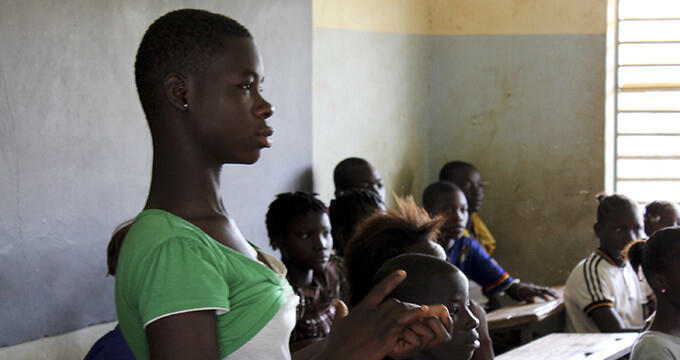In a world wracked by conflict and climate crises, women and girls pay a heavy price.
When uprooted from their homes in search of safety, women and girls face soaring threats of violence while on the move. Displacement heightens their vulnerability to sexual and physical assault, rape, forced and child marriage, and many other forms of exploitation and abuse. Indeed, 70 per cent of women are subjected to gender-based violence in crisis zones.
With this in mind, our theme for the International Day for the Elimination of Violence Against Women this year is #Uprooted: Resilience in crisis. Our goal: to draw attention to the increased risks of gender-based violence that displaced women and girls face, and to call on the international community to prioritize and provide the necessary funding for their protection.
In times of crisis, women are often forced to flee alone or with children, undertake dangerous journeys and deal with precarious living conditions. If available at all, accommodations are typically temporary, overcrowded and, too often, unsafe. Sexual exploitation and abuse rise as women are stripped of their safety nets and networks. Some turn to damaging coping mechanisms to survive, such as the provision of sexual services in exchange for food, money or safe passage.
Meanwhile, at a time when the needs of women and girls are highest, access to services and support shrinks. Displacement disrupts health and protection structures, ruptures community support systems and separates families. For survivors of gender-based violence, the impact on their physical and mental health is immeasurable.
Further, gender-based violence is a vastly under-reported and under-investigated crime, perpetuated by a cycle of impunity for abusers. This fosters an environment of fear and stigma, hindering the healing of survivors and negating their right of access to justice and support.
Despite the serious and at times fatal effects of gender-based violence, it is still not prioritized with enough urgency amid crisis. Critical services for survivors – including emergency medical care, psychosocial support and safe shelters – must be funded and placed at the centre of all humanitarian responses. In addition, displaced women and girls and survivors of gender-based violence must be involved in response planning from the outset, as they know the prevention and protective health measures they need.
While UNFPA and its partners are providing essential support to displaced survivors of gender-based violence around the world, increased international coordination and commitments, including adequate funding and greater political will, are needed to eradicate gender-based violence everywhere.




